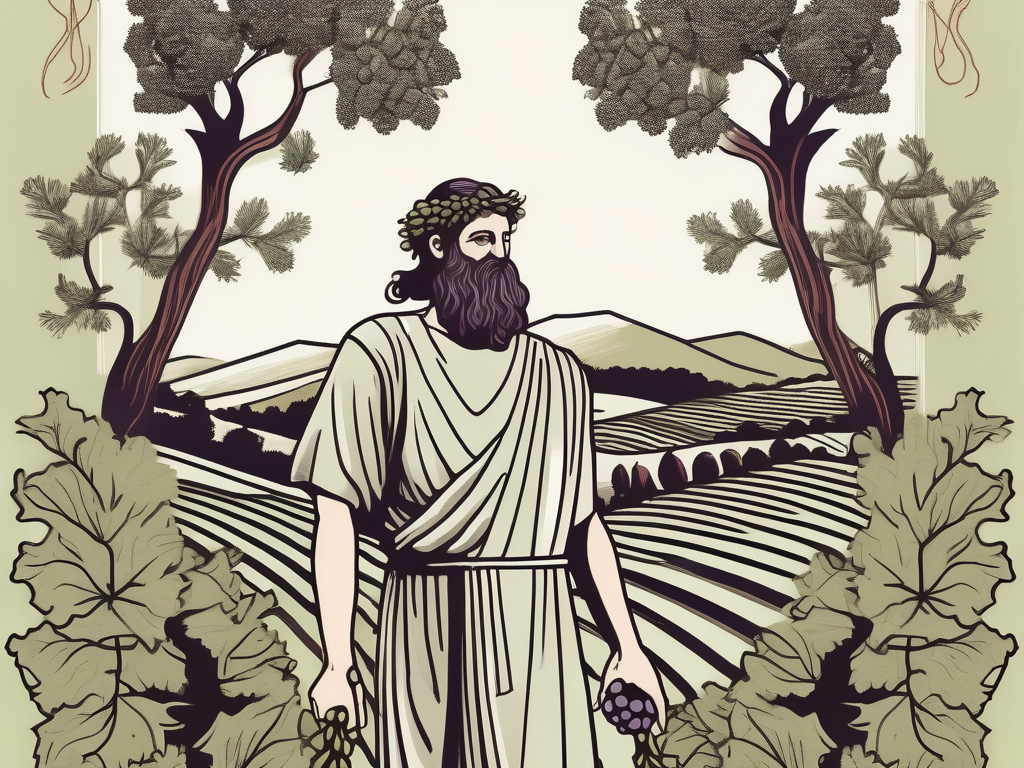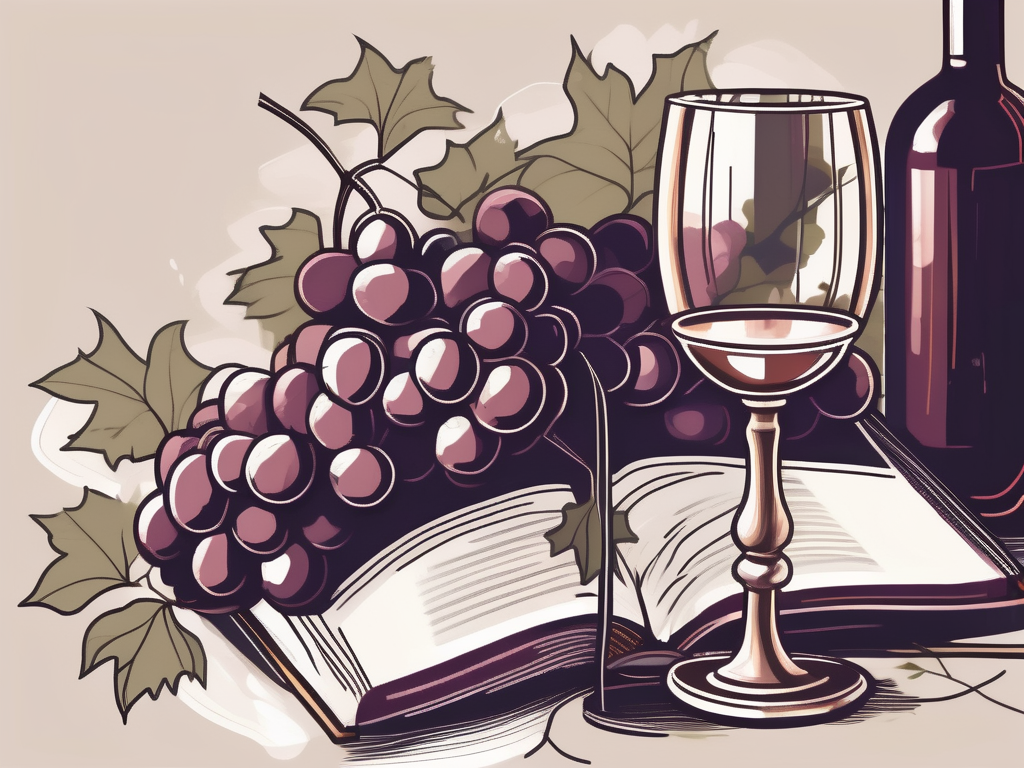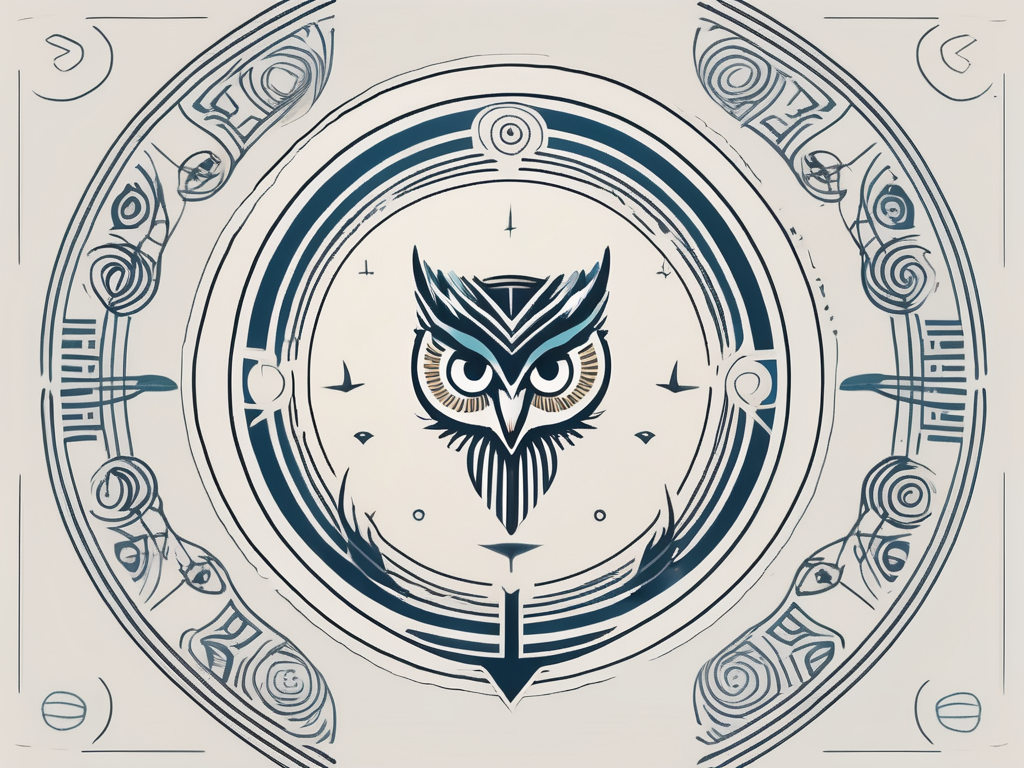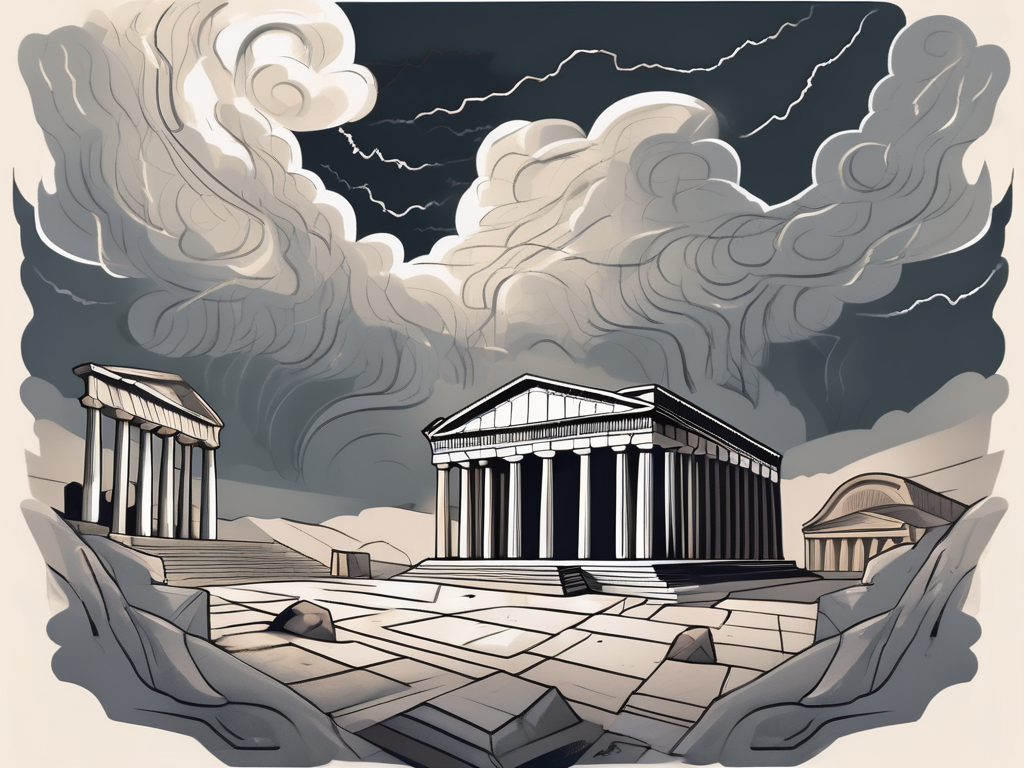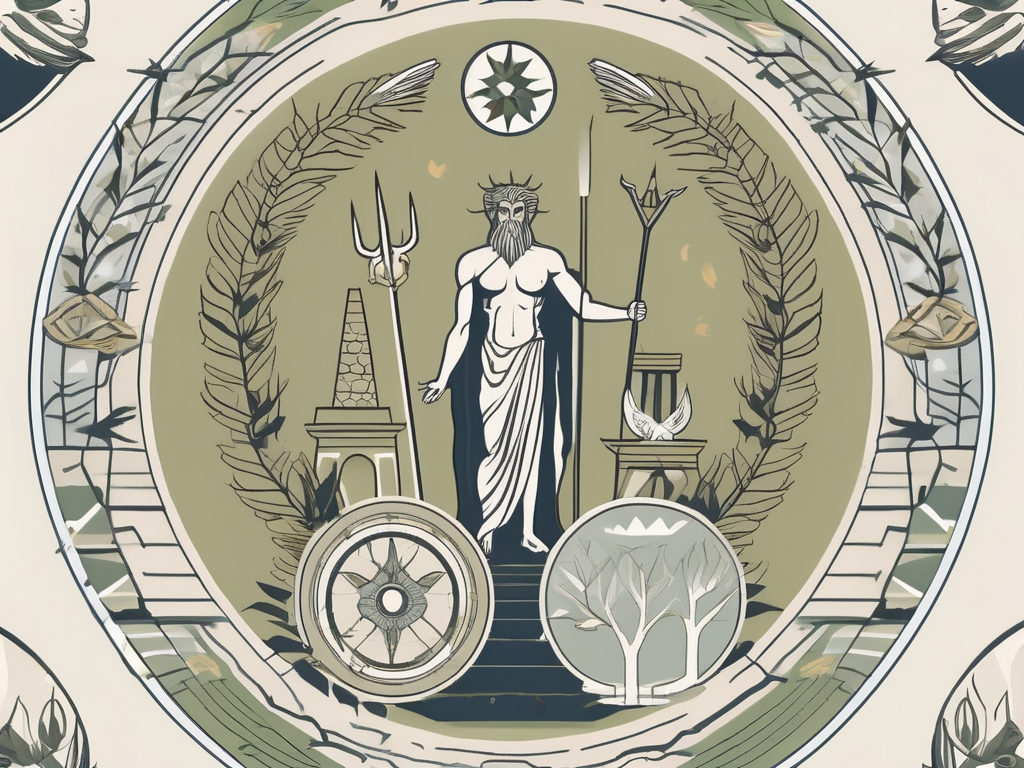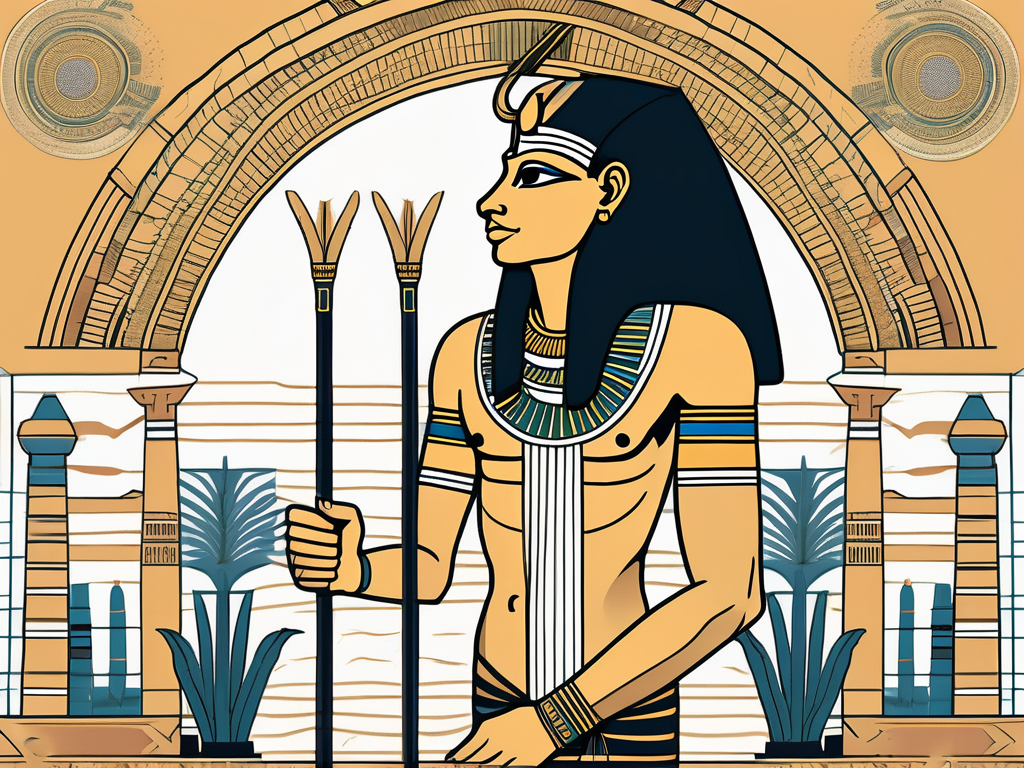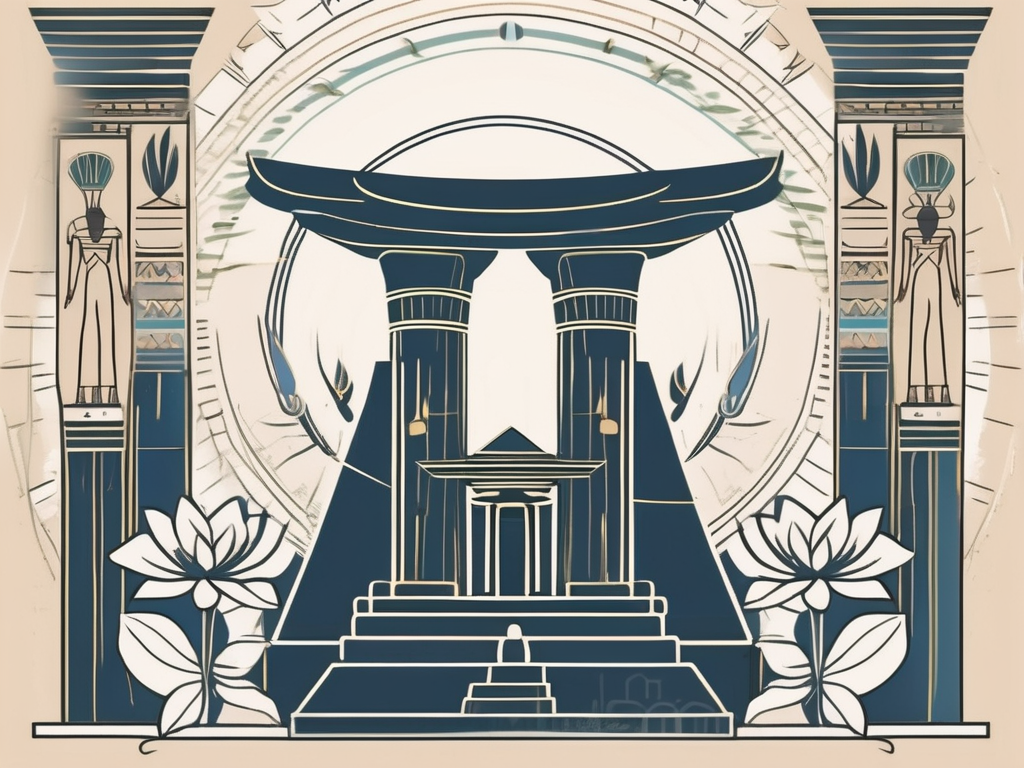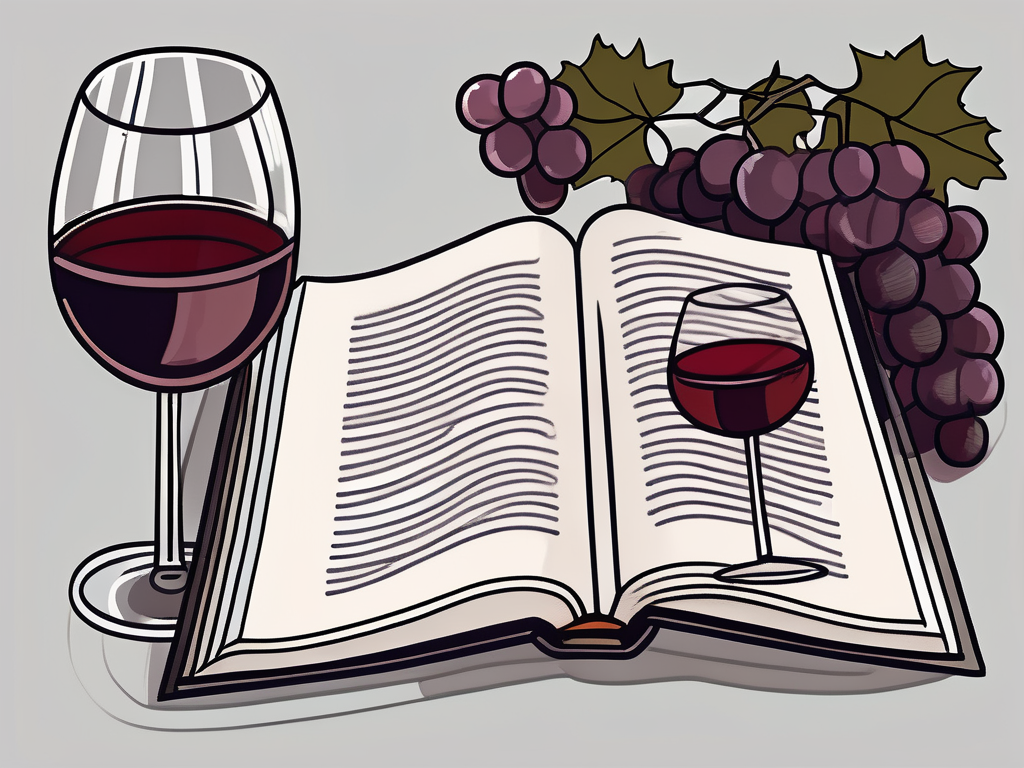Dionysus, the Greek god of wine, ecstasy, and fertility, is one of the most intriguing figures in Greek mythology. His legends and origins have captivated the imagination of countless individuals throughout history. In this article, we will delve into the myth of Dionysus, exploring his fascinating story and the various roles he played in ancient Greek culture.
Understanding Dionysus: A Brief Introduction
To truly appreciate Dionysus and his significance, it is essential to grasp the basics of his character and mythology. In Greek mythology, Dionysus is known as the son of Zeus, the king of the gods, and Semele, a mortal woman. His birth is no ordinary tale but is imbued with divine power and tragedy.
Dionysus, the god of wine and revelry, holds a special place in the pantheon of Greek deities. His story is one of passion, sacrifice, and the transformative power of wine. Let us delve deeper into the fascinating tale of Dionysus and uncover the layers of his mythological persona.
The Birth of Dionysus: A Tale of Fire and Wine
The story goes that Zeus, smitten by Semele’s beauty, appeared before her in all his godly glory. The overpowering presence of Zeus led Semele to request a favor—the manifestation of his true divine form. Zeus, bound by an oath, reluctantly obliged, knowing the consequences. Semele, unable to withstand the divine radiance, perished, but not before Dionysus was miraculously saved.
Zeus, desperate to keep his unborn son alive, stitched the child into his thigh until it was time for Dionysus to be born. And so, the god of wine came into the world, emerging from Zeus’ thigh fully grown and reborn.
The birth of Dionysus is a testament to the extraordinary nature of his existence. Born from the ashes of tragedy, he embodies the dualities of life—celebration and sorrow, pleasure and pain.
Dionysus in Greek Mythology: The God of Many Faces
Dionysus’s multifaceted nature is reflected in the various roles he played in Greek mythology. He was not only the god of wine but also the patron deity of drama and fertility.
In the realm of wine, Dionysus was renowned for his ability to inspire merriment and intoxication. Legend has it that he taught mortals the art of winemaking, spreading his knowledge across the lands and bringing joy to those who indulged in his divine creations.
But Dionysus’s influence extended beyond the vineyards. As the patron of drama, he held a prominent place in Greek theatre. His presence can be seen in the tragedies and comedies performed during ancient Greek festivals, where his worshippers would celebrate him with grand theatrical productions.
The essence of Dionysus’s character lies in his ability to bridge the gap between the mortal and divine worlds. He embodies the transformative power of wine, the catharsis of theater, and the fertility of the earth. Dionysus is a god of contrasts, embodying both the wild and the civilized, the joyous and the tragic.
As we embark on a journey to understand Dionysus, we must immerse ourselves in the rich tapestry of his mythology. From his birth to his role as the god of wine and drama, Dionysus captivates us with his enigmatic presence and leaves us longing for more.
The Role and Influence of Dionysus in Ancient Greece
Dionysus’s impact on ancient Greek society extended beyond the realms of wine and theatre. His cult, known as the Bacchic cult, was a significant part of Greek religious practices, characterized by wild and ecstatic celebrations.
The worship of Dionysus was not limited to mere devotion; it was a way of life that encompassed various rituals and revelries. The followers, known as Bacchants or Maenads, would immerse themselves in the intoxicating world of Dionysian festivities. These elaborate rituals often involved excessive drinking, dancing, and uninhibited revelry.
During these celebrations, the boundaries of society were temporarily suspended, allowing the participants to indulge in their desires and embrace their primal instincts. It was a cathartic release, a momentary escape from the constraints of everyday life. The Bacchants believed that by surrendering to Dionysus, they could tap into a higher state of consciousness and experience a profound sense of liberation.
Dionysus and the Cult of Bacchus: Rituals and Revelries
Worshipping Dionysus meant embracing a life of uninhibited freedom and indulgence. The followers, known as Bacchants or Maenads, would engage in elaborate rituals and revelries, which often involved excessive drinking, dancing, and uninhibited revelry.
This unbridled celebration of life and abandonment of social constraints served as a cathartic release for the worshippers. It allowed them to tap into their primal instincts and experience a sense of liberation.
One of the most iconic rituals associated with the Bacchic cult was the Dionysian Mysteries. These secret ceremonies were held in secluded locations, away from prying eyes. Participants would undergo a series of initiation rites, symbolizing their rebirth into the world of Dionysus. The rituals were shrouded in mystery, with only the initiated few having knowledge of the sacred practices.
Another notable aspect of the Bacchic cult was the role of the Dionysian priests, known as the “Bacchae.” These priests were responsible for leading the rituals and guiding the worshippers through their spiritual journey. They were believed to possess a direct connection to Dionysus, acting as intermediaries between the mortal realm and the divine.
Dionysus in Greek Theatre: The Patron of Drama
In addition to his religious cult, Dionysus played a crucial role in the realm of Greek theatre. His influence can still be observed in modern dramatic tropes and conventions.
The theatre festivals held in honor of Dionysus allowed playwrights to showcase their talents and explore profound themes. Dionysus became synonymous with the art form, overseeing the performances and inspiring creativity among the artists.
One of the most significant contributions of Dionysus to Greek theatre was the introduction of the chorus. The chorus, a group of performers who sang and danced, served as a narrative device, providing commentary and insight into the events unfolding on stage. This dramatic convention, which originated in the worship of Dionysus, has had a lasting impact on the development of theatre.
Dionysus also inspired the concept of tragedy, a genre that explored the darker aspects of human existence. Tragic plays often revolved around themes of fate, suffering, and the human condition. Dionysus, as the god of wine and ecstasy, embodied both the joyous and the tragic aspects of life, making him a fitting patron for this dramatic form.
Furthermore, the festivals held in Dionysus’s honor provided a platform for emerging playwrights to gain recognition and acclaim. The City Dionysia, one of the most prestigious theatre festivals in ancient Greece, attracted audiences from all over the region. Winning a competition at this festival could launch a playwright’s career and secure their place in the annals of theatrical history.
Overall, Dionysus’s influence extended far beyond the realms of wine and theatre. His cult and the rituals associated with it offered a means of escape from societal norms and a pathway to self-discovery. In the world of theatre, Dionysus’s patronage fostered the development of dramatic conventions that continue to shape the art form to this day.
The Symbolism of Dionysus: Wine, Fertility, and Ecstasy
Dionysus’s association with wine, fertility, and ecstasy gave rise to powerful symbolism that permeated Ancient Greek culture. These symbols became integral to understanding his essence and worshipping him.
The Vine and the Thyrsus: Symbols of Dionysus
The vine, with its twisting branches and bountiful grapes, became a prominent symbol of Dionysus. It represented the abundance of life, fertility, and the joyous intoxication that wine brings.
Similarly, the thyrsus—a staff topped with a pine cone—symbolized Dionysus’s divine power and influence. It was an object used during his rituals and processions, signifying the transcendence of mortal limits and the connection between humanity and the gods.
Dionysus and the Maenads: A Symbol of Uninhibited Freedom
Perhaps the most striking symbol associated with Dionysus is the Maenads themselves. These female followers of Dionysus were often depicted as wild, intoxicated women, free from societal expectations and restraints.
The Maenads embodied the chaos and ecstasy that Dionysus represented. Their portrayal served as a reminder of the liberating power of embracing one’s desires and embracing the untamed aspects of our own nature.
Dionysus in Modern Culture and Psychology
The influence of Dionysus extends far beyond ancient Greece. Even today, his mythology resonates with various aspects of modern culture and psychology.
The Dionysian Influence in Modern Literature and Art
The concept of the Dionysian, characterized by chaos, intoxication, and the pursuit of pleasure, has been explored in numerous works of literature and art. From Shakespeare’s tragedies to modern-day novels, the influence of Dionysus can be seen in the portrayal of characters driven by their primal desires.
Dionysus and the Concept of the ‘Dionysian’ in Psychology
In the realm of psychology, the “Dionysian” has become synonymous with the pursuit of ecstasy and the release of inhibitions. Psychologists have explored the dichotomy between the rational Apollonian and the irrational Dionysian aspects of human nature, acknowledging the importance of embracing both for a fulfilling and balanced existence.
Debunking Misconceptions about Dionysus
Despite the mystique surrounding Dionysus, he is often misunderstood and reduced to the simple god of wine. However, there is much more to Dionysus than meets the eye.
Beyond the God of Wine: The Multifaceted Nature of Dionysus
As we have explored, Dionysus is not simply a god of wine, but a complex figure associated with fertility, theatre, and untamed freedom. To understand him fully, it is crucial to embrace the depth and richness of his mythology and symbolism.
Dionysus: A God of Paradoxes and Contradictions
Like many ancient deities, Dionysus embodies paradoxes and contradictions. He is both a god of chaos and a god of creativity, of intoxication and liberation. Embracing these contradictions allows us to better understand the complexities of human nature and the world around us.
So, the next time you raise a glass of wine or find yourself captivated by a riveting play, remember the myth of Dionysus—the Greek god whose origins and legends continue to captivate and inspire us.
